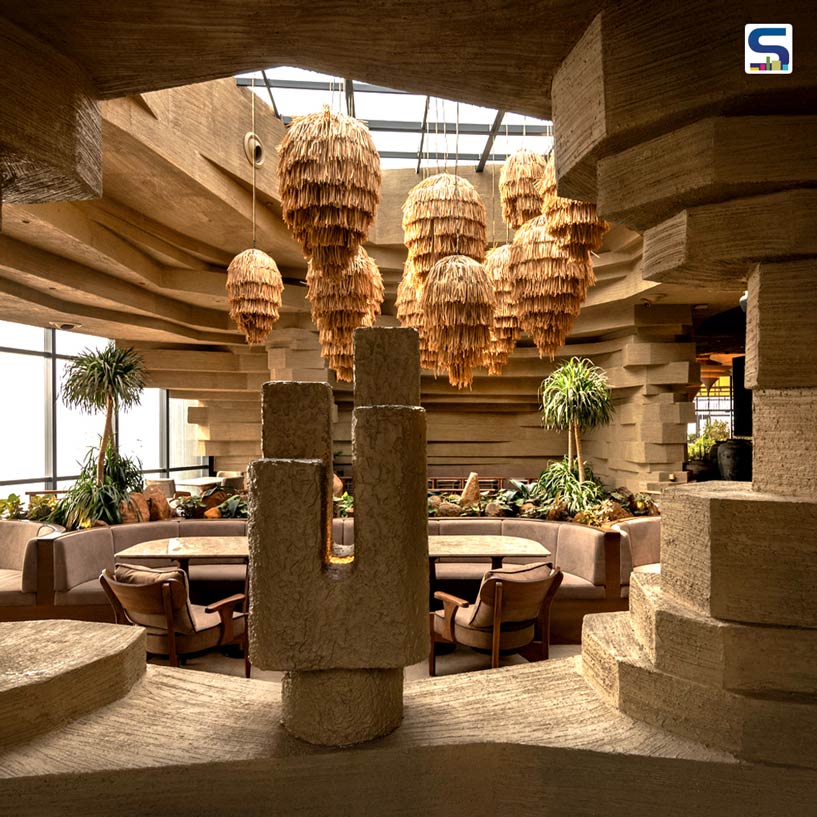
Mocha Cafe, designed by Loop Design Studio, is an exploration of material, form and atmosphere. It is a space that transports visitors into what feels like a dig out world beneath the surface of the earth. Spread across 7,000sqft in Pune, the cafe draws inspiration from the raw majesty of ancient quarries and the sculpted cave dwellings reminiscent of the dwarves of Moria, translating these primal ideas into a contemporary architectural experience. SURFACES REPORTER (SR) showcases how the design of a cafe narrates the story of earth, its materials and the primal relationship between humans and the environment they built.
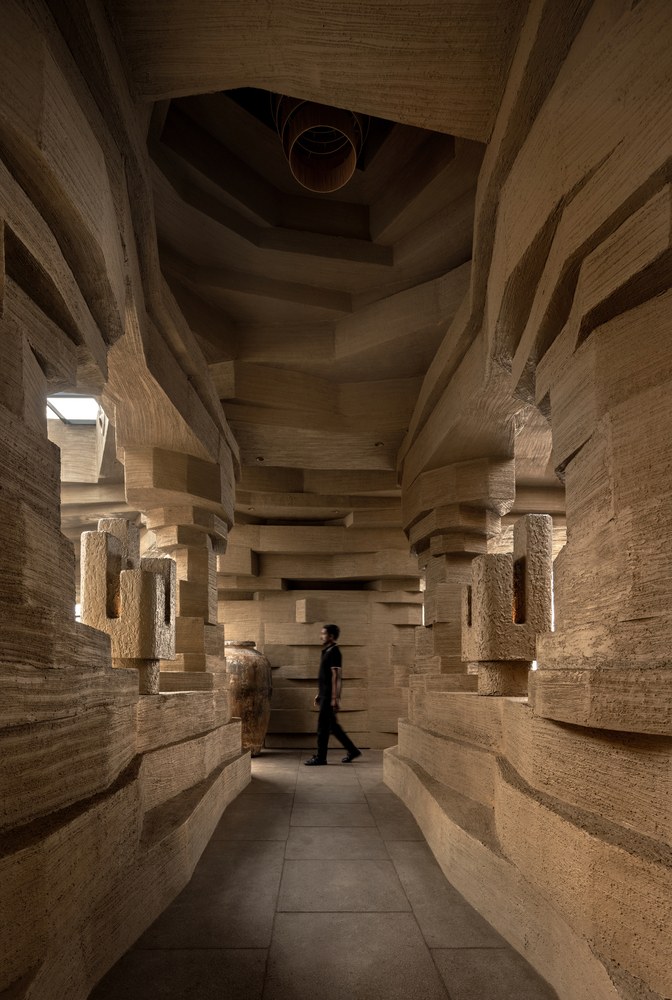
The seamless junctions between horizontal and vertical planes make it appear as though the entire space has been sculpted from a single mass of stone.
An earth sculptured experience
The design concept emerges from a fascination with the monolithic and the timeless. Mocha evokes the grandeur of spaces that appear not built, but unearthed. It appears as if the cafe had always existed within the earth, waiting to be revealed. Dominated by massive, stratified columns and volumetric forms that seem carved rather than constructed, the spatial composition blurs the line between structure and sculpture. These forms rise from the ground, where their textured surfaces are marked by the layered design of sedimentary rock. Each surface tells a story of pressure, time and transformation. The process had been designed to capture the essence of geological processes in architectural form.
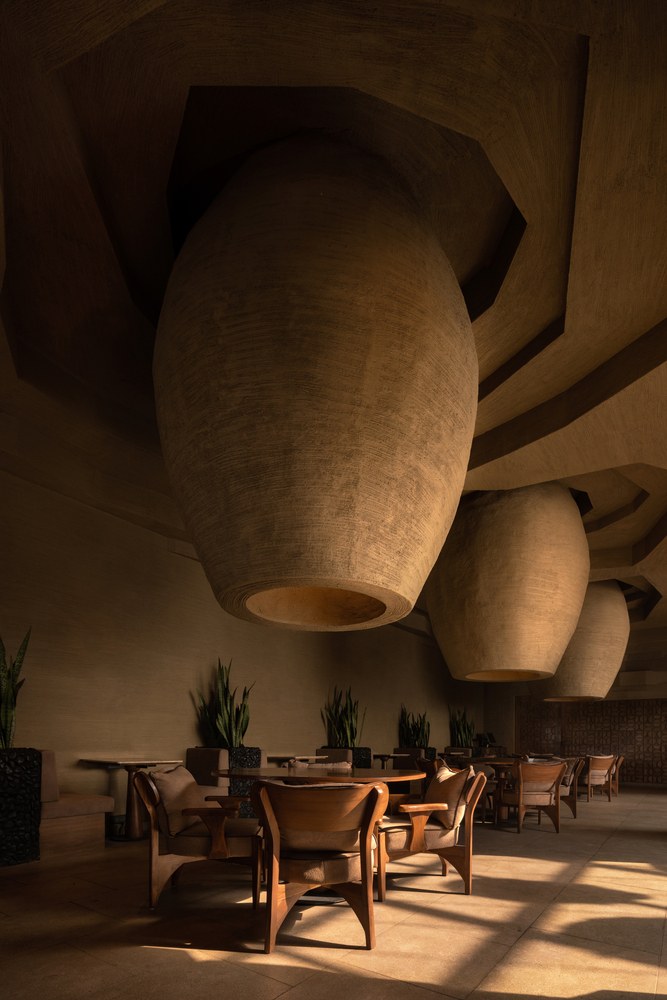
Natural light filters in selectively, while warm artificial illumination radiates from organic fixtures that resemble stalactite clusters or mineral formations.
At the heart of the design lies an intricate balance between weight and suspension. Cantilevered elements extend dramatically into space, creating the illusion of heavy masses defying gravity, while hollowed out, inverted vessels anchor the ceiling. Lighting becomes a powerful sculptural tool within the cafe. The deliberate interplay of light and shadow accentuates the tectonic texture of the surfaces, making the cafe a living canvas of highlights and depths. Natural light filters in selectively, while warm artificial illumination radiates from organic fixtures that resemble stalactite clusters or mineral formations. These lights soften the roughness of the stone-textured surfaces, creating moments of warmth and intimacy.
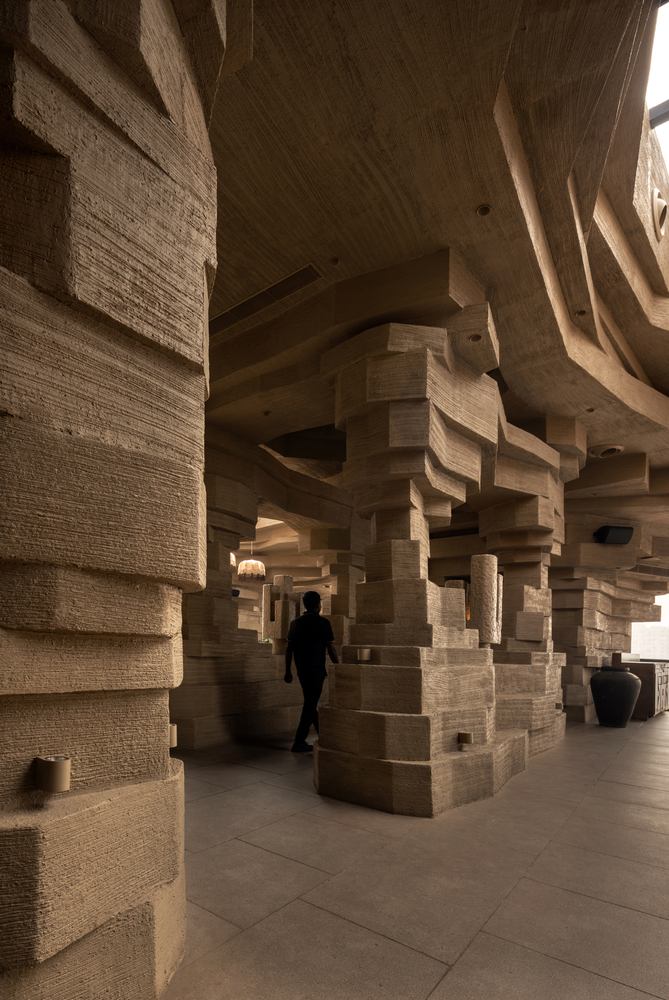
Cantilevered elements extend dramatically into space, creating the illusion of heavy masses defying gravity, while hollowed out, inverted vessels anchor the ceiling.
A cave-like masterpiece of material and form
The material palette reinforces the cave-inspired identity of the space. Rough-hewn, sedimentary-like surfaces dominate the space, providing tactile richness and a sense of continuity across walls, ceilings and columns. The seamless junctions between horizontal and vertical planes make it appear as though the entire space has been sculpted from a single mass of stone.
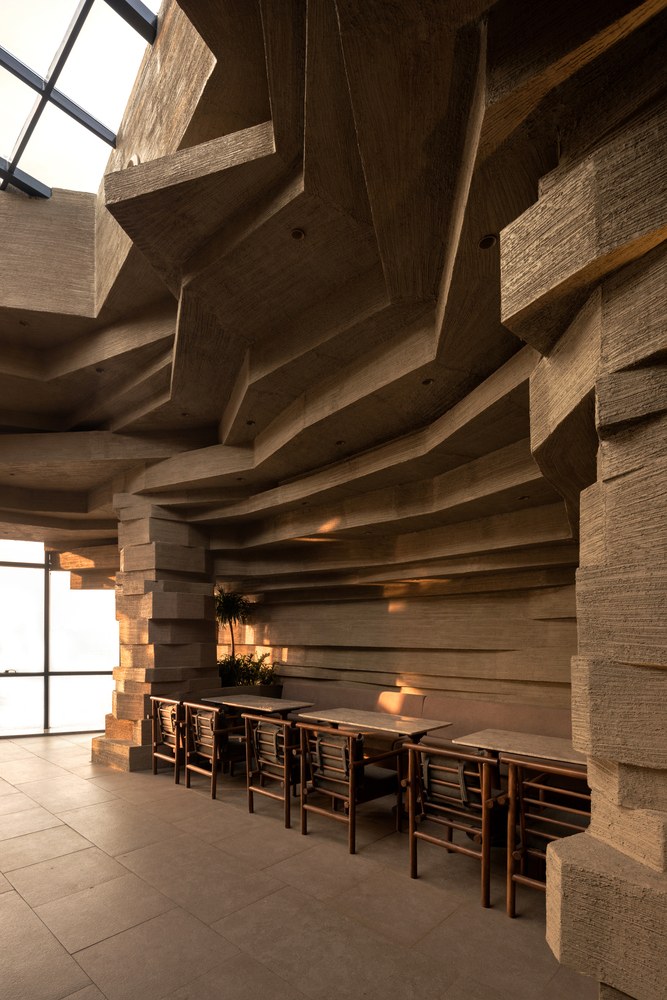
The design concept emerges from a fascination with the monolithic and the timeless.
What distinguishes Mocha Pune Cafe is its ability to combine the monumental with the personal touch. Despite its grand, cave-like scale, the design creates zones of comfort and enclosure. Seating areas are carefully nestled within sculptural alcoves and framed by stone-like volumes that offer both privacy and perspective.
For SURFACES REPORTER, Mocha Cafe offers valuable insights on the power of materiality and spatial drama. It is a remarkable example on how form, texture, and light can be organized to create immersive environments that resonate with memory, culture, and nature.
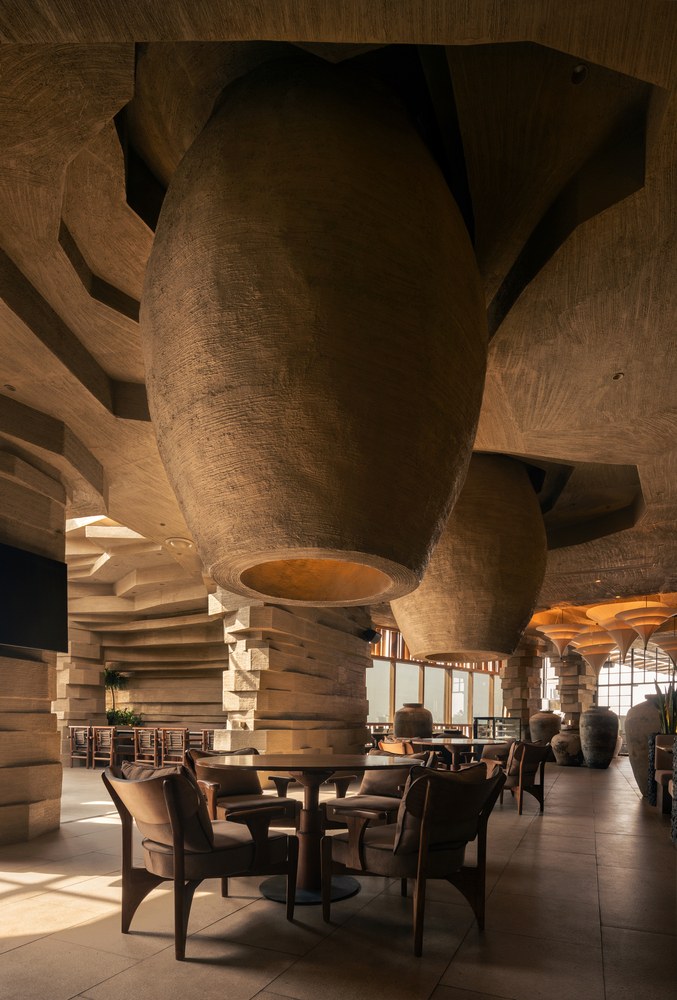
Dominated by massive, stratified columns and volumetric forms that seem carved rather than constructed, the spatial composition blurs the line between structure and sculpture.
Project details
Project name: Mocha Cafe
Location: Pune, Maharashtra
Type: Restaurant
Area: 7000 sqft
Completion: 2025
Studio: Loop Design Studio
Lead architects: Suvrita Bhardwaj and Nikhil Pratap Singh
Design team: Himani Bansal, Rhythm Bansal, Akshita Saklani and Anshita Thakur
Photographs: Purnesh Dev Nikhanj